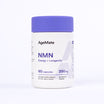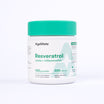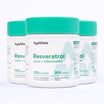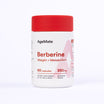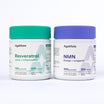Key Takeaways:
- Certain gut bacteria can improve metabolic health and extend lifespan.
- Gut microbiota composition changes with age.
- A healthy gut microbiome is crucial for digestion, immunity, and cognitive function as we age.
__________________________
Did you know that certain gut bacteria can produce compounds that extend lifespan? For example, Akkermansia muciniphila has been linked to improved metabolic health and longevity.
While we often focus on diet, exercise, and mental well-being, the gut microbiome—a complex community of bacteria, fungi, and other microorganisms residing in our digestive tract—plays an essential role in our overall health. Understanding its importance can unlock the secrets to healthy ageing.
Does Gut Microbiota Change with Age?
As we age, the composition and diversity of our gut microbiota undergo significant changes. These alterations can have profound implications for our health and wellbeing. Here’s a closer look at how gut microbiota evolves with age and its impact on healthy ageing.

Early Life and Youth
In infancy, the gut microbiota is relatively simple, dominated by a few key bacterial species. The process of colonisation begins at birth, influenced by factors such as mode of delivery (vaginal birth vs. cesarean section), breastfeeding, and early exposure to antibiotics. As children grow, their gut microbiota becomes more diverse and stable, mirroring the complexity of an adult’s microbiome by around the age of three (R).
Adulthood
During adulthood, the gut microbiota reaches a stable state, characterised by high diversity and resilience. This stability is crucial for maintaining various bodily functions, including digestion, immune response, and protection against pathogens. A diverse gut microbiota is often associated with better health outcomes and a lower risk of chronic diseases such as obesity, diabetes, and inflammatory bowel disease (R).
Senior Years
As we enter our senior years, the gut microbiota begins to change again, often showing a decline in diversity. This decrease is influenced by various factors, including dietary changes, medication use (such as antibiotics and nonsteroidal anti-inflammatory drugs), reduced physical activity, and the natural ageing process of the gastrointestinal tract. These changes can lead to an increased susceptibility to infections, inflammation, and age-related diseases (R).
Specifically, ageing is associated with a reduction in beneficial bacteria like Bifidobacteria and Akkermansia muciniphila, and an increase in potentially harmful bacteria. This imbalance, known as dysbiosis, can contribute to chronic inflammation, also referred to as “inflammaging,” which is a key factor in many age-related diseases, including cardiovascular disease, Alzheimer’s disease, and cancer (R).
Optimising Digestion and Nutrient Absorption
As we age, digestive efficiency can decline, making nutrient absorption more challenging. A diverse and balanced gut microbiome helps break down complex carbohydrates, fibres, and proteins, ensuring we get the most out of our diet. Beneficial gut bacteria produce short-chain fatty acids crucial for colon health and energy metabolism (R).
In a study published in Nature involving 178 elderly participants aged 64-102, it was found that those with a more diverse gut microbiota had better overall health and lower levels of inflammation compared to those with less diverse gut microbiomes. The participants’ gut microbiota composition was analysed and correlated with dietary patterns and health status, highlighting the critical role of microbial diversity in healthy ageing (R).
Fortifying the Immune System
The gut is home to approximately 70% of your immune system. The microbiome interacts with immune cells, regulating responses and preventing infections. Maintaining a healthy gut microbiome reduces the risk of chronic inflammation, which is linked to many age-related diseases, such as arthritis, cardiovascular disease, and certain cancers (R).
Research in 2015 involving 500 elderly participants from various geographical locations found that the gut microbiota could influence ageing-related changes in innate immunity, thereby reducing susceptibility to age-related conditions. Participants with a diverse gut microbiome showed a more robust immune response, which was measured through blood biomarkers and immune cell activity (R).
Your gut health might even influence your mood and memory. Continue reading to explore the gut-brain connection.
Boosting Mental Health and Cognitive Function

The gut-brain axis highlights the connection between our gut and brain. Beneficial gut bacteria produce neurotransmitters like serotonin, influencing mood, sleep, and cognitive function. Emerging research suggests that a healthy gut microbiome can lower the risk of neurodegenerative diseases such as Alzheimer’s and Parkinson’s.
A study of 30 elderly individuals with varying cognitive health statuses showed that those with a healthier gut microbiome had better cognitive function and fewer symptoms of neurodegenerative diseases. The gut microbiota’s composition was analysed, and its relationship with brain health was explored through cognitive tests and brain imaging (R).
Learn how your gut can guard against chronic diseases next.
Guarding Against Chronic Diseases
Chronic inflammation is a significant contributor to many age-related diseases, including diabetes and heart disease. A healthy gut microbiome helps regulate inflammation and supports a balanced immune response. Consuming probiotic and prebiotic foods promotes the growth of beneficial bacteria, reducing inflammation and protecting against these conditions.
Studies have shown that specific microbial families, such as Christensenellaceae, are linked to a healthier metabolic profile and reduced visceral adipose tissue. In a study involving 200 elderly participants, those with higher levels of these beneficial bacteria had better metabolic health, as evidenced by lower body mass index (BMI), reduced visceral fat, and improved blood glucose levels (R, R).
Enhancing Skin Health
An imbalance in gut bacteria, known as dysbiosis, can lead to skin conditions like acne, eczema, and psoriasis. Maintaining a healthy gut microbiome can improve your skin’s appearance and resilience, contributing to a more youthful complexion. The health of your skin often reflects the health of your gut (R).
Recent findings suggest that gut-skin axis dysbiosis can be mitigated by probiotics, leading to improved skin health and reduced symptoms of inflammatory skin conditions. A study involving 50 participants with moderate atopic dermatitis showed significant improvement in their skin health after 12 weeks of probiotic supplementation, as measured by dermatological assessments and patient self-reports (R).
As we age, managing weight can be tricky—your gut can help. Find out how next.
Supporting Weight Management
As metabolism slows with age, maintaining a healthy weight becomes more challenging. The gut microbiome influences metabolism and energy balance. Certain gut bacteria are associated with a lower risk of obesity and can help regulate body weight by improving digestion and reducing inflammation (R).
Promoting Longevity
Recent studies indicate that the composition of the gut microbiome can influence lifespan. Centenarians often have a diverse and balanced gut microbiome, suggesting that a healthy gut may contribute to longevity (R).
A study involving Chinese centenarians revealed that their gut microbiota contained unique strains of bacteria that promoted anti-inflammatory properties and enhanced immune function. The research included 168 individuals from China, categorised into a long-living group (aged 90 years and older) and a younger age group. Significant differences in the gut microbiota were found, which were linked to longevity and a reduced incidence of chronic diseases (R).
Want practical tips to nurture your gut health? The next section will show you how.
Nurturing a Healthy Gut Microbiome

Maintaining a healthy gut microbiome requires a combination of dietary and lifestyle choices:
Conclusion
The gut microbiome plays a pivotal role in healthy ageing, influencing digestion, immune function, mental health, and more. By prioritising gut health through a balanced diet, regular exercise, and stress management, you can support a thriving gut microbiome, promoting vitality and well-being as you age.
Your gut health plays a crucial role in how you age. Our Longevity Blend provides nutrients such as magnesium, glycine and MSM to support a healthy gut and overall wellbeing.




